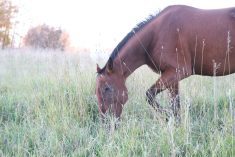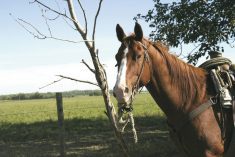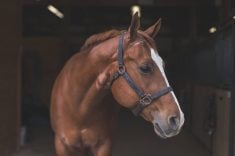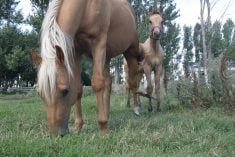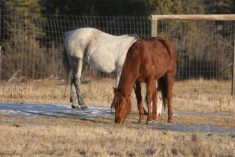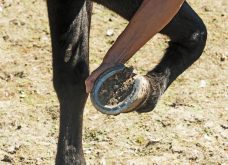While significant attention is directed towards the health of foals themselves, understanding the factors contributing to the welfare of the brood mare is equally, if not more, important for development of well-balanced, healthy young horses.
The brood mare is frequently undervalued as a performance horse. The same qualities of an elite performer — athleticism, soundness, intelligence and adaptability — should also be present in her. Furthermore, she plays a vital role in producing the next generation of horses.
The physical health of the brood mare is paramount. Her body shoulders the responsibility of conceiving, carrying the foal to term and providing her offspring the necessary nutrients for development from conception until weaning. This demands a significant intake of essential nutritional resources — calories, minerals and vitamins.
Read Also
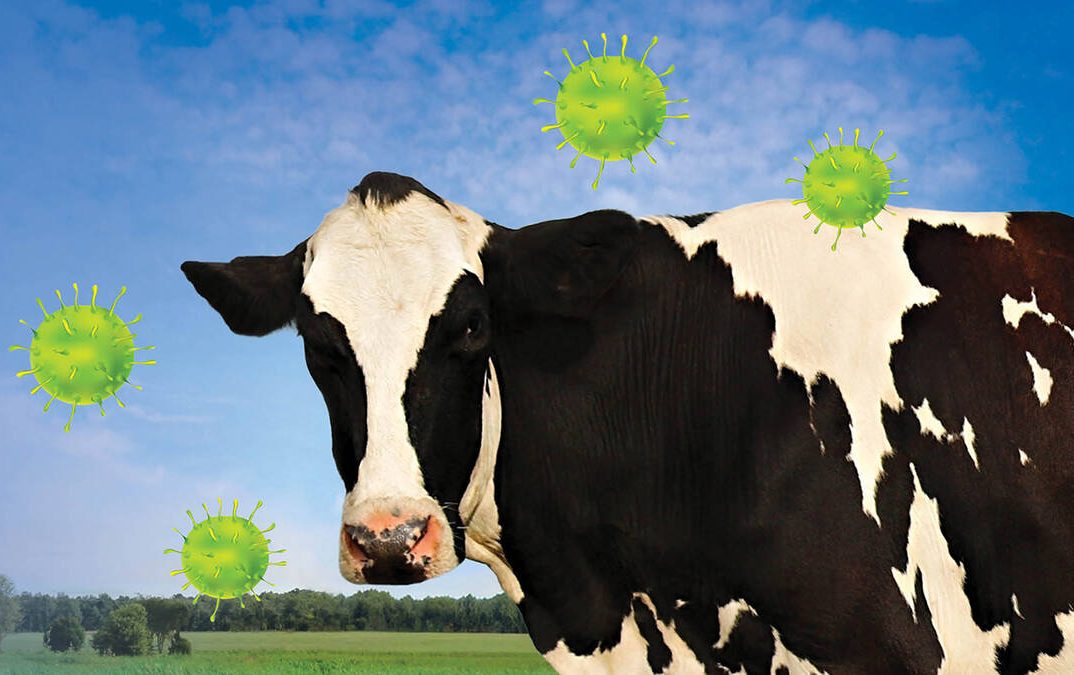
Researchers stay on trail of bovine bird flu’s origin
Canada’s dairy cattle herd is so far spared from avian flu, and work continues to contain its spread in the U.S., but the disease is far from gone.
Monitoring the caloric balance of the mare through her body condition is relatively straightforward, yet it is equally important to ensure adequate mineral intake and levels, especially in multiparous mares.
Without proper supplementation, multiparous mares become particularly vulnerable to mineral depletion. This deficiency can greatly affect the physical health of both mare and foal.
Selenium deficiency, for instance, can lead to weak or premature foals with compromised immune systems and growth, as well as dams prone to retained placentas.
Similarly, copper deficiency during fetal development can affect bone development in the foal, increasing the risk of conditions like osteochondrosis and skeletal deformities. Ensuring optimal mineral nutrition in a mare’s diet is essential for safeguarding her reproductive health and the physical welfare of foal as a fetus, newborn and growing youngster.
Mental and emotional well-being of the dam also play a significant role in the development of desirable traits and characteristics in her offspring. Essential components such as ample movement in a healthy herd setting, proper dental and hoof care, as well as judicious deworming and vaccination, all contribute to this aspect of mare health.
These practices better equip her to provide adequate care, attention, and guidance to her foal as it grows. It’s the mare who will teach her offspring proper social behaviours and provide the necessary protection and comfort during early social development and learning. A calm, content and confident demeanour in a dam will positively influence the foal’s behaviour and temperament, nurturing the growth of a mentally well-adjusted and socially adept individual.
In basic training program, brood mares often miss out on proper introduction to human interaction, leaving them without essential guidance and structure when handled by humans. Without instruction in groundwork etiquette, brood mares may feel anxious and uncertain during these interactions. This anxiety and confusion can result in perceived misbehaviour and harsh treatment from handlers, ultimately causing the brood mare to develop aversions to humans.
The significance of the dam’s attitude towards human handling should not be overlooked or underestimated.
Horses are experiential learners, and thus their early experiences significantly shape them. A foal’s initial impressions of humans are shaped by observing its dam’s interactions with them, and they tend to mimic their dam’s emotional response. This can shape various aspects of the young horse’s relationships with humans as they mature.
Renowned horseman Ray Hunt is credited with the phrase, “So they are started, so they go,” emphasizing the critical role of initial impressions upon a horse’s behaviour and performance.
Taking the foal’s perspective into account, it is highly valuable to approach these early influences in a way that promotes positive relationships with humans right from the beginning. This begins well before the horse officially begins training in a round pen.
By investing in the holistic elements that support the health and welfare of brood mares, we enable them to nurture their foals effectively, creating a ripple effect of benefits for the young horse.




